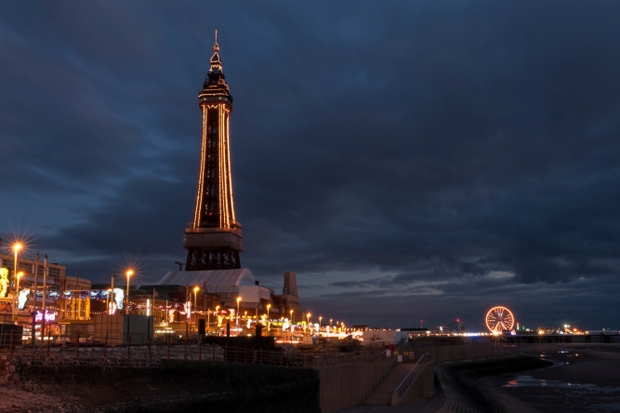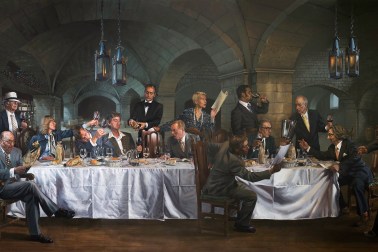The illuminations of Andrew O’Hagan’s fifth novel are both metaphysical and mundane. In the course of its taut plot, they encompass Blackpool’s elaborate decorations and a moment of understanding between a grandmother and grandson; epiphanies about the nature of masculinity picked out by the tracer fire and explosions in Afghanistan; and a photograph of an everyday sink linked to the aesthetic realisation that ‘colour is light on fire’.
O’Hagan has rightly been praised as a prose stylist, and his grasp of cadence and rhythm is every bit as evident here as before; but what is more impressive is O’Hagan as strenuous moralist. A book which addresses the problems of an aging population, gaming technology as army recruitment, broken relationships between couples and generations, the ethics of foreign military intervention and even a nod to the arguments of the independence referendum might be accused of substituting the merely contemporary for the enduringly relevant, but they are choreographed with such graciousness that this never feels like a feature piece or opinion column inflated into a novel.

Get Britain's best politics newsletters
Register to get The Spectator's insight and opinion straight to your inbox. You can then read two free articles each week.
Already a subscriber? Log in






Comments
Join the debate for just £1 a month
Be part of the conversation with other Spectator readers by getting your first three months for £3.
UNLOCK ACCESS Just £1 a monthAlready a subscriber? Log in